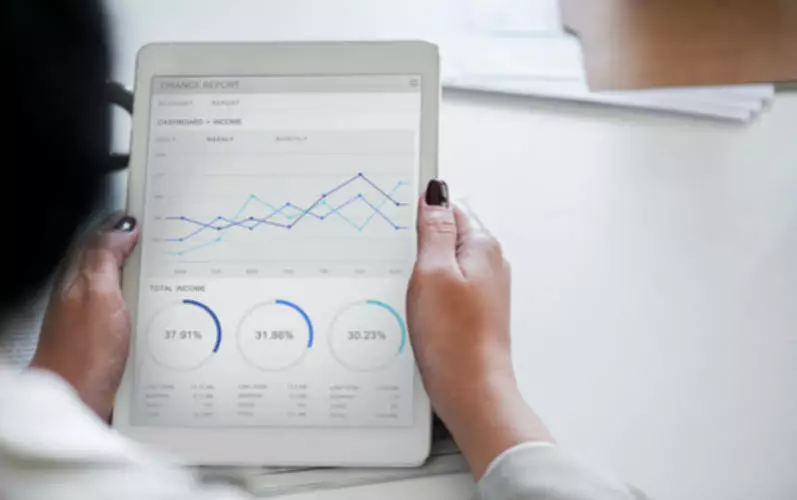Content

Understanding depreciation is handy for predicting the value of your assets over time. Even if you have an outside accountant, you’re going to want quality accounting software you can plug everything into. These are two very different sets of tasks and should be kept separate to maintain accurate accounting. Visually, a chart of accounts is just a list of your various financial accounts, typically using a number system to organize those accounts.
- Finally, unexpected expenses may include paying for marketing tools if there are too many vacancies.
- Accounting software functionality is weaker than others on this list.
- For individuals managing their own properties, cash accounting is usually advised (and preferred).
- Finally, Condo Control offers a good balance of features geared toward condo, co-op, and HOA managers.
- Total cost is constant, and per-unit cost decreases with volume increases.
- Anything the property owns or controls that provides future economic value, generally listed from most to least liquid.
- Are you ready to start your own property management business, but you need more training before you feel confident?
According to the survey, the usage rate of proptech will significantly increase by 39% in 2021 and the next five years, from only 18% in 2020. Among the areas of property management that modern digital tools have helped improve the most is accounting. Despite being a multi-billion dollar industry, real estate surprisingly lags behind the adoption of technology—until it became an absolute necessity. Whether or not you employ an accountant, use accounting software, or do it yourself, it is essential to understand the basics of property management accounting.
A guide to building a Purchase-to-Pay business case
PROMAS is property management accounting software built for fee-based and investment property owners and managers and for homeowners associations. Most property managers use cash-basis accounting, but you have to be careful not to lose track of revenue and expenses as they occur. That’s where property management bookkeeping services, and specifically property management accounting software comes in handy. Property accounting is the process of preparing, reviewing, and maintaining the financial records of a rental property, be it residential or commercial. Property management accountants typically perform accounting tasks for rental properties. Though, there are also a number of property management accounting software that you can use to stay on top of your financials.
Is property management the same as asset management?
In short, the main difference between an asset manager and a property manager is that real estate asset managers focus on maximizing a property's value for investment purposes, whereas property managers take care of the day-to-day activities related to a property's physical structure and operations.
A company set up like this is impaired by the pressure to hire excess staff to compensate for inefficiency and the inability to add properties to their portfolio confidently and rapidly. The company bogs down quickly, and it is difficult to restructure when the company hits the maximum workload. Property managers never need to hold a reserve account in full-month accounting because they can always use the collected rent from that month to offset repair expenses. Full month is where your statements run from the 1st to the end of the calendar month (28th, 30th, or 31st). When your statements run from 1-30, it’s much easier to understand as an owner what is happening inside your property that month (you’ll have cleaner accounting statements).
Have Separate Accounts for Administrative and Property Management Operations
Each month, the software generates property management invoices, automatically picking up all the tracked PM activities that generate fees for the PM company. These fees and activities include percentages of base rent or additional rent, vacancy or occupancy fees, and a PM company’s numerous services. Property management companies typically use one of two types of accounting styles for your owner statements. Most property managers send an owner statement when they disburse your monthly owner distribution. The owner statement details all the income and expenses for the month which details how your owner distribution was calculated.

For example, if your tenant moves in Jan 1, your property manager will not release those funds until roughly January 31st. Don’t worry, you aren’t missing out on a month’s rent because you will still get a final property management accounting rent draw for the last month of their tenancy. Any money owed to the corporation/association is documented under accounts receivable. Usually, this money comes from residents paying assessments, dues or fees.
Do the monthly accounting cycle
All accounting entries are completed in one system and tracked to each property, tenant, and property ownership company. The accounting entries are automatically pushed to a linked accounting system. All property and financial reporting are self-contained within the integrated systems.
- Considering the number of bank reconciliations he had to perform, Rob was glad he accounted for stress balls and ibuprofen in his property’s operating cost.
- Advancements in technology, such as artificial intelligence and machine learning, will enable automation of repetitive tasks, data analysis, and predictive analytics.
- Condo residents can use Condo Control to make one-time or recurring payments by connecting their bank or credit cards to the platform.
- This is where property management accounting software comes in, not only to prevent costly but avoidable mistakes but also to improve the overall operations of your real estate business.
- This way, it is infinitely easier to find and track the payments made and received and reconcile your general ledger at regular intervals.
- Depreciation is the term given to the drop in value of your assets.
This point only applies if you deal in commercial real estate, where many leases are triple net or NNN lease types. As a business owner, it’s essential to review your financials each year to see what changed and what improvements you can make. It’s impossible to know just how many accounts you’ll need over the next decade (and beyond) for your chart of accounts. Because of this, it tends to be the accounting method that most sole proprietors choose to use.
Part I: Accounting Terms
Experts would recommend having different teams manage the two accounts in order to reduce the risk of fraud. This blog article is not intended to be the rendering of legal, accounting, tax advice or other professional services. Articles are based on current or proposed tax rules at the time they are written and older posts are not updated for tax rule changes. We expressly disclaim all liability in regard to actions taken or not taken based on the contents of this blog as well as the use or interpretation of this information.
The complete record of a company’s financial transactions used to prepare all financial statements. The section of a property’s cash flow statement showing the net flow of cash used to fund the property. Financing activities include transactions involving debt, equity, and dividends. Proper employees unanimously concluded there is no calling nobler than property management accounting Period.
